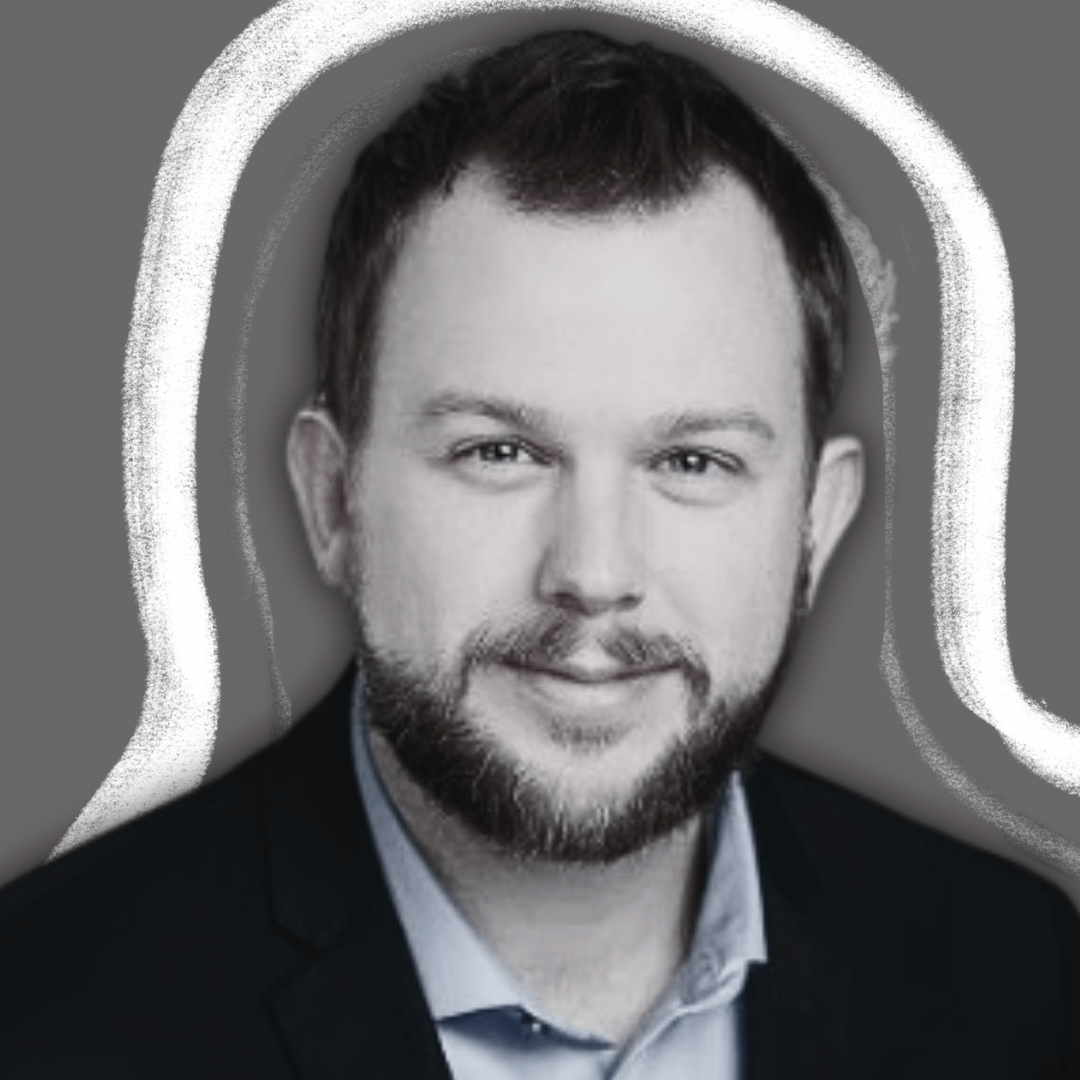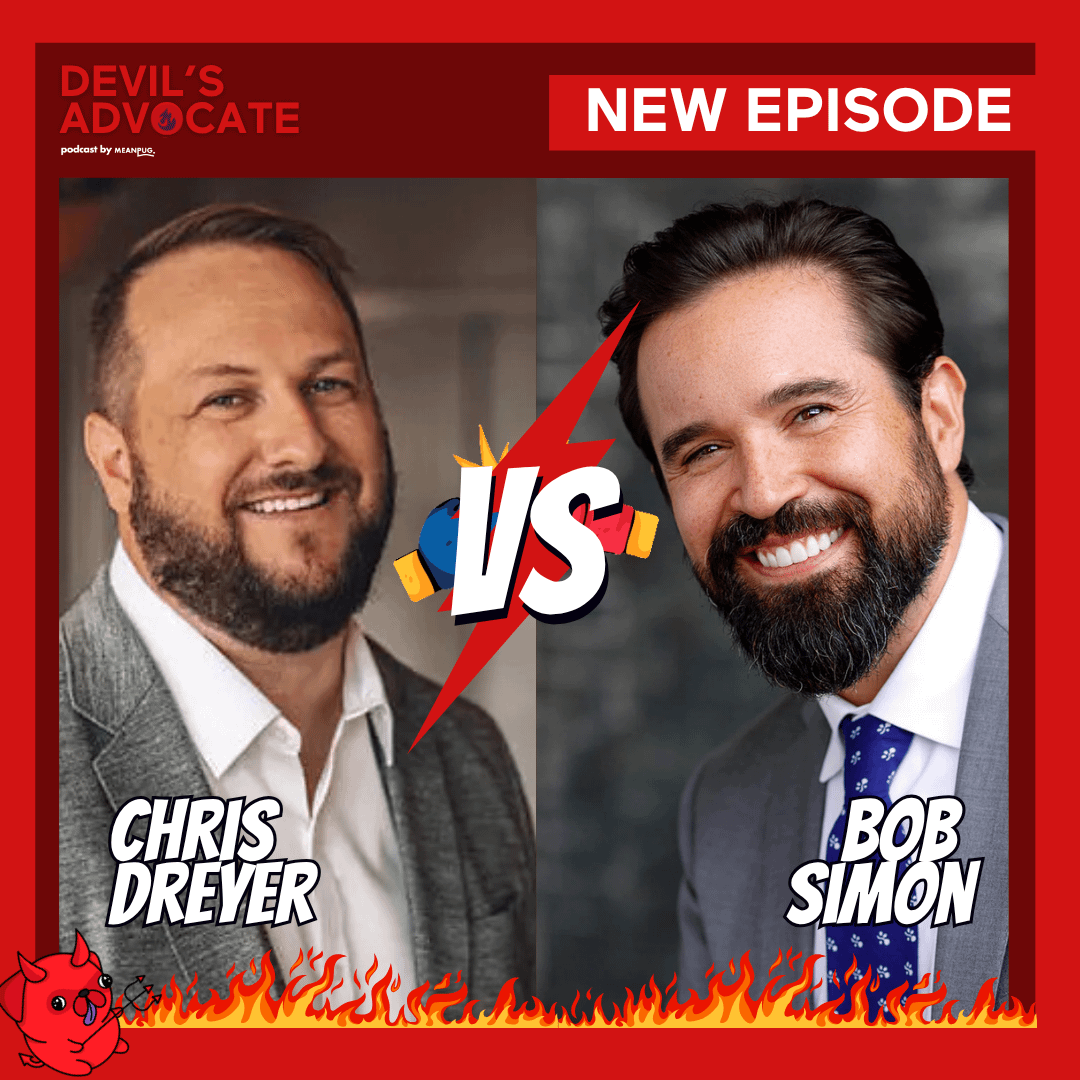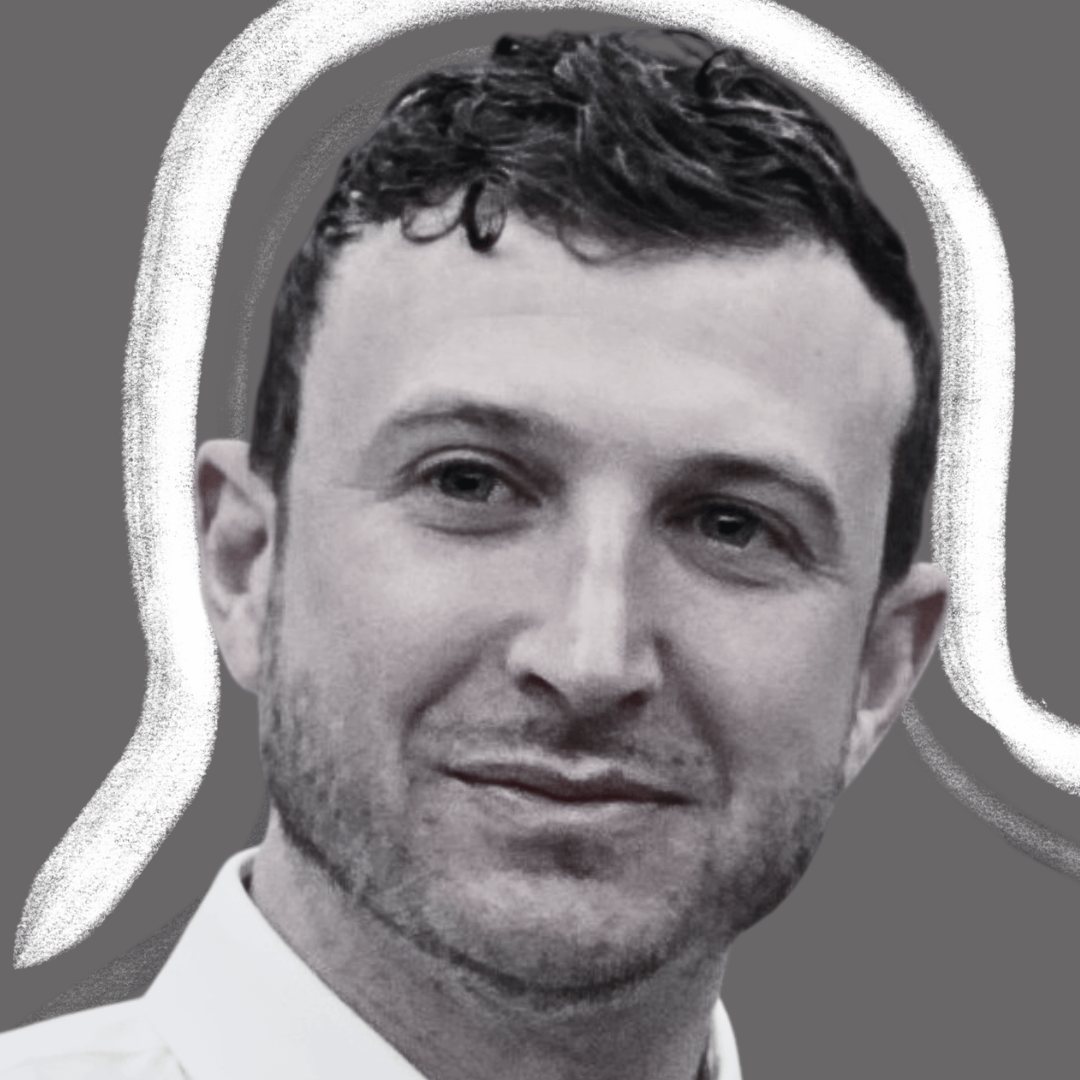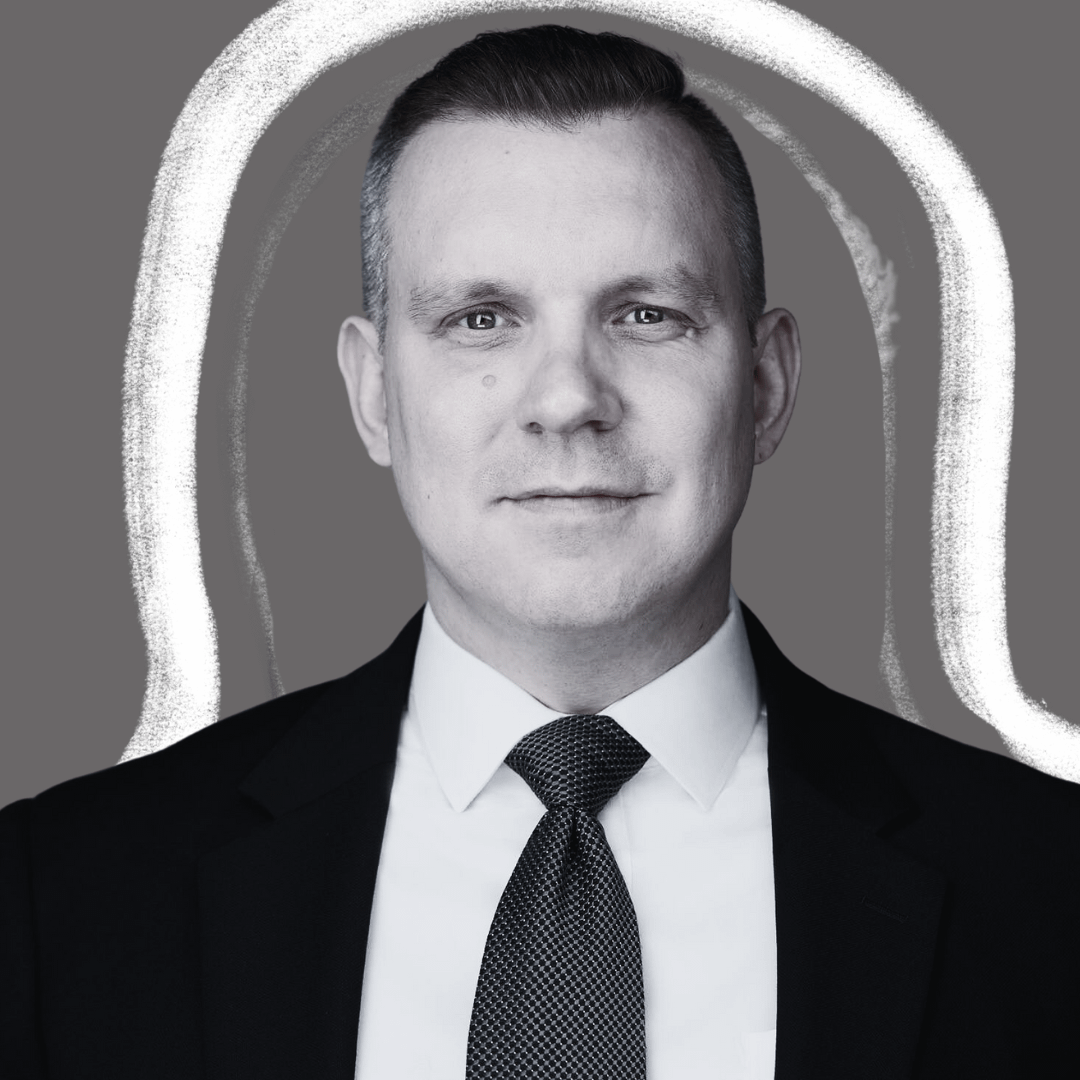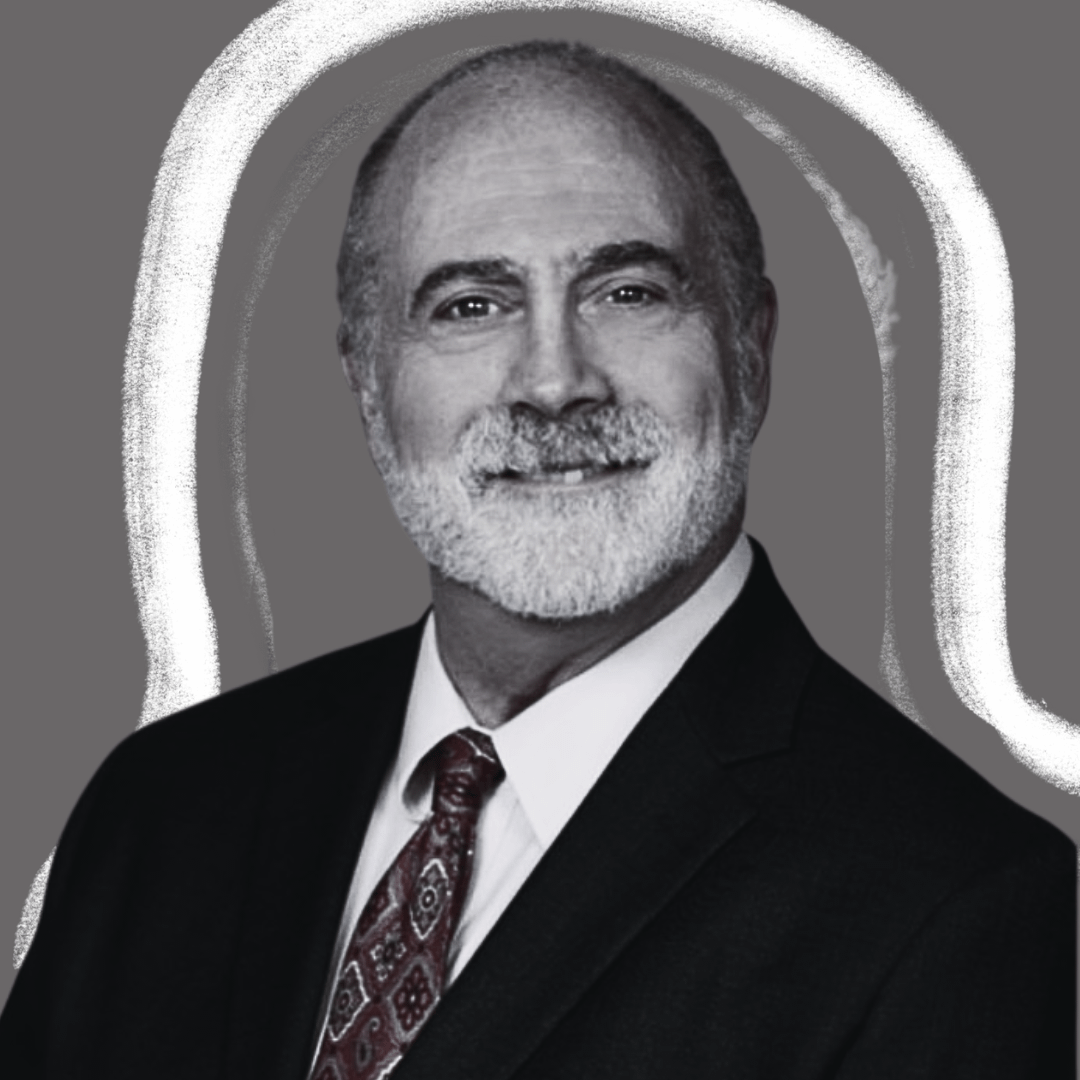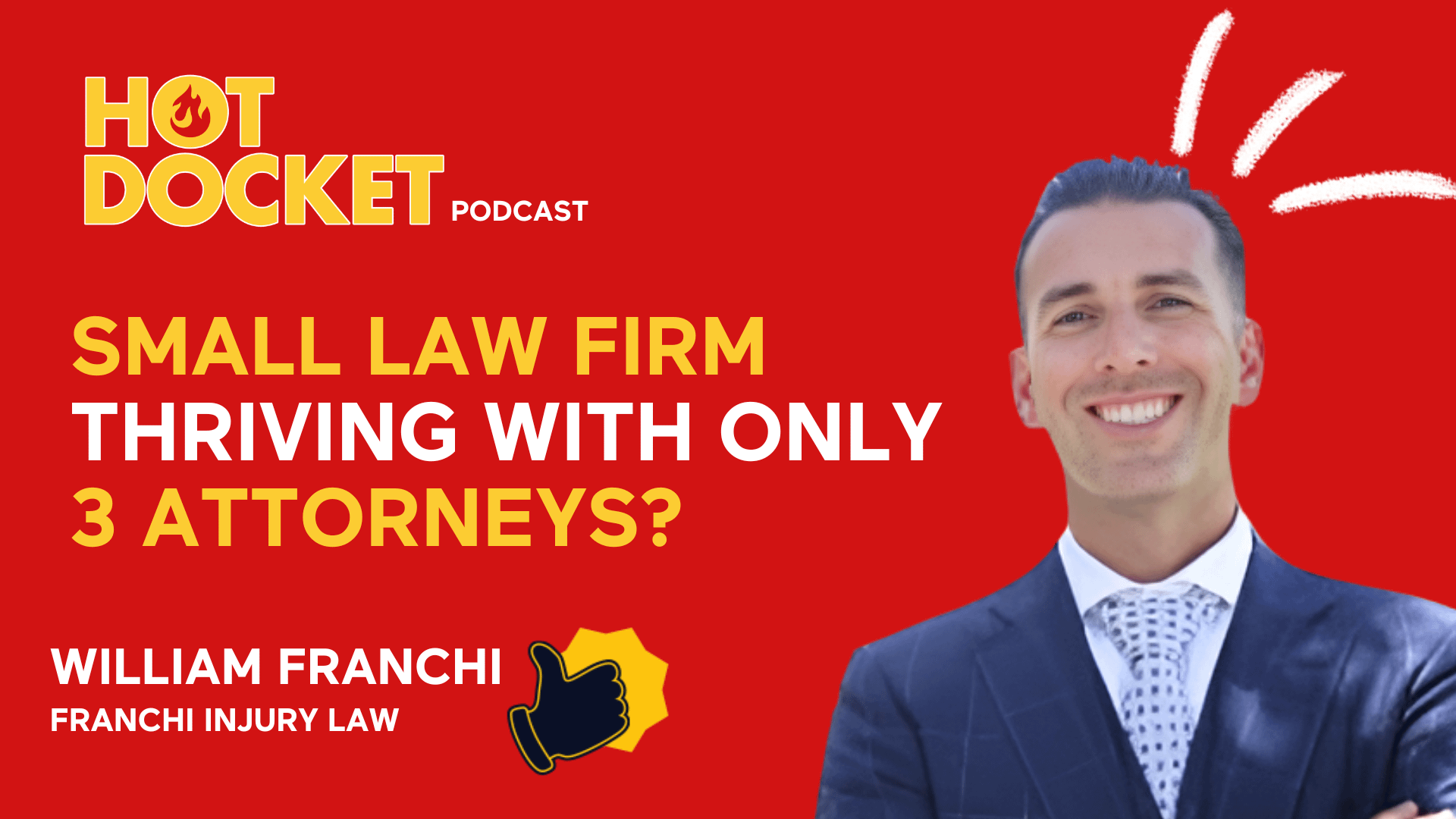
Episode Overview
While small All may not be able to compete with the marketing budget of a large law firm, there are quite a few advantages you have as a small law firm!
If you’re a small law firm with a mighty marketing strategy, you can pull in more cases than you know what to do with. Tune in to learn more about how to differentiate your small firm from the competition and scale your capacity to serve your community.
Today, we’re chatting with William Franchi, Founder and Managing Attorney at Franchi Injury Law, about the advantages and challenges of being a trial lawyer at a small law firm. With only three attorneys practicing at Franchi Injury Law, including himself, William has a unique perspective of diversifying your marketing channels, building unbreakable referral relationships, and knowing when it’s the right time to branch out into new areas of law.
Stay tuned to the end as we put William in the spotlight to answer some fun, yet slightly cringey riddles!
Episode Links
Want to hear more from elite lawyers and industry-leading marketers?
Follow us on Social Media for more
Episode Topics
- Personal Journey: Why William chose to become a trial attorney after a life-changing college sports injury
- Facing Challenges: The difficulties encountered when practicing personal injury law as a small firm
- Strategic Expansion: Why William decided to diversify into multiple service areas after six years of resistance
- Standing Out: How to distinguish your small law firm’s brand from competitors through podcasts, books, and more
- Scaling Up: Strategies for increasing your capacity to serve more clients during periods of high case volume
- Building Bridges: Effective approaches to establishing referral relationships with other firms and attorneys
Key Takeaways
- Assess and prioritize marketing channels based on your budget to maximize ROI, ensuring your financial resources are allocated to the most effective platforms.
- Implement smaller, targeted campaigns when working with limited budgets to test and optimize your strategies without a significant financial commitment.
- Diversify your marketing channels to ensure consistent lead generation, reducing reliance on a single source and increasing overall stability.
- Build and enhance your firm’s reputation to boost referrals, leveraging positive client reviews and testimonials to attract new clients and strengthen trust.
Episode Transcript
[00:00:00] William Franchi:
We have separate pages built out within, so that way if someone finds us in a
DUI search, they’re going to get the DUI pages. If someone finds us in an
auto accident injury search, they’re going to find the auto accident page.
[00:00:16] Bobby Steinbach:
Welcome to Hot Docket, the show where we talk about winning marketing strategies
that have built the most successful All.
[00:00:22] Andrew Nasrinpay:
Join us every two weeks for the latest trends and tactics to grow your law firm.
[00:00:28] Bobby Steinbach:
Hey everybody and welcome to the Hot Docket Podcast. Today, we’re going to
be talking to William Franke. Uh, a trial lawyer for his, uh, at his boutique,
uh, law firm. So we’re going to be talking with him about all things, what
that means, like being a trial lawyer at a small firm.
[00:00:44] Bobby Steinbach:
And I’m excited to talk about that trial lawyers, I think for like, when
we talk about marketing and what that means, which is yours and I as bread and
butter, it is a little bit, almost like a Venn diagram. I think the overlap
tends to be smaller than some of the marketing firms that we may talk to. So a
lot of insight.
[00:01:02] Andrew Nasrinpay:
Yep, and I think it’s gonna be super interesting to see the advantages
that small firms have and The areas where they might not be able to compete with
big firms where budget might be one of them Obviously, they’re not gonna
try to throw a bunch of money at a problem when there are firms with thousand
lawyers But there’s a lot they can do and there’s a lot that
actually puts them at a competitive advantage
[00:01:23] Bobby Steinbach:
Yep makes sense.
[00:01:24] Bobby Steinbach:
So with that let’s introduce William Franchi who’s here with us
today.
[00:01:34] Bobby Steinbach:
Hey William
[00:01:35] William Franchi:
Hey guys, how you doing?
[00:01:37] Bobby Steinbach:
All good. Um, I’m going to turn it over to Andrew so he can ask the first
question that we put together here.
[00:01:43] Andrew Nasrinpay:
Yeah. So on our side, we’re, we’re curious about how you decided to
become a lawyer. Can you give us a little bit of background on your origin
story, how you decided to become a trial lawyer, start your own firm?
[00:01:55] William Franchi:
Sure. And you know what? I’d say that my. How I got here is probably a lot
different than how a lot of other people got to, uh, even just being an
attorney. So if we go all the way back to undergrad, I played baseball at
University of Tampa before that Western Carolina, but. I ended up getting hurt.
I ended up having Tommy John surgery, but I didn’t really have a plan.
[00:02:18] William Franchi:
My plan then was I was going to go be a college coach and that was going to be
that. That was, that was my whole plan. Um, got her, I’m going to give you
the kind of super, super simple, short version of it. Got her, had Tommy John
surgery and really decided I didn’t want to coach anymore. It really just
wasn’t something that matched up with what I want to do, but I
didn’t, I didn’t have a backup plan.
[00:02:42] William Franchi:
I didn’t have a. This is what I’m going to do if this doesn’t
work out. So I actually went and, um, my dad was pretty high up in IBM at the
time. I said, Hey dad, you know, if you get me a job, he said, sure. At the call
center in Atlanta, where all the other first year people start. Um, Promptly
called him back and said, no, that’s okay.
[00:03:01] William Franchi:
That’s, that’s not really what I want to do. Uh, went and was a
deputy, became a deputy in Pinellas County, um, which is local here to Tampa,
um, and then Hillsborough County after that, no family in law enforcement, but
decided that that was where I wanted to go with life, um, partway through a
couple of years in, I decided I should have a backup plan.
[00:03:22] William Franchi:
That may be experienced an undergrad of not having a backup plan. I decided I
should just in case something were to happen, just in case I were to get hurt.
Um, law school ended up being that backup plan. Uh, I’d like to say
it’s not because of math, right? They, they kind of age old lawyers hate
math. Um, but I was actually missing prerequisites to do business, to do
business grad school.
[00:03:48] William Franchi:
So. I didn’t want to go do prerequisites because I was never going to
leave the sheriff’s office because it was, this was a backup plan. Uh,
long story short, Thanksgiving, 2009, I ended up tearing a ligament in my hip,
uh, left the sheriff’s office shortly after that. I was already in law
school at the time.
[00:04:05] William Franchi:
I was almost done with law school. When I left, I had about a semester left and,
um, that’s, that’s kind of how I got into being a lawyer is really.
You know, it sounds, I guess, maybe bad, but it was a backup plan. Um, and the
backup plan has turned out to be really good. I had some, some really good
breaks. Uh, I had a friend of mine whose wife worked in a corporate general
counsel’s office, and that kind of became the springboard.
[00:04:33] William Franchi:
Um, it also became the springboard to determine that I. wanted no part of
corporate general counsel life, uh, that it really solidified that I wanted to
be a trial lawyer, right? Once I knew I was not going to be a deputy anymore and
follow that path, I knew that trial work was where I wanted to be. And so I
parlayed that into a job at a personal injury firm, which we also did a sports
representation there as well.
[00:05:02] William Franchi:
So kind of took that and springboarded from Corporate General Counsel into
personal injury work at a firm.
[00:05:09] Bobby Steinbach:
I cannot imagine being in law enforcement in Florida. That must have been a
crazy job. Was the most interesting thing you saw in the courtroom when you were
doing personal injury work? Or was it something that you were doing when you
were a sheriff?
[00:05:25] William Franchi:
Um, you know, I’ve had some really, really interesting experiences on both
sides of it. Um, I mean, one of the, the first biggest arrests I made was a case
that went federal. So I got to testify in federal court. I’m 23 years old
testifying in federal court, which was, uh, pretty awesome. Um, you, the, the
feds actually got the conviction and the guy went away, I think for like 12 to
15 years, something along those lines.
[00:05:51] William Franchi:
Um, which, I mean, that was, that was a cool case in and of itself, but then.
You know, on the lawyer side of it. Yeah. I mean, it’s, it’s pretty
cool being on the lawyer side of it because you’re the one in there kind
of directing everything, right? You’re, you’re, you’re making
the show happen, right? Trials are a show.
[00:06:09] William Franchi:
Trials are really. When you boil them down, it’s less about the facts and
more about the showmanship. And I love the showmanship aspect of it, of getting
up there and making it all about, you know, if it’s, if it’s cross
examination making it all about me for, for lack of a better way to say it, if
it’s direct examination, making it all about that witness and their story.
[00:06:33] William Franchi:
So. I really love that aspect of it. So both, both sides of the fence have been
really great in terms of being in trials.
[00:06:42] Bobby Steinbach:
Yeah, no, that’s pretty awesome insight. Um, and I’m sure
there’s a lot of tricky things that go on in a trial in order to prepare
and do what you need to. I’d love to talk more about some of the
difficulties holistically of practicing personal injury as a smaller law firm.
[00:06:58] Bobby Steinbach:
Like what are some of the challenges that are unique to being a smaller law firm
in the space?
[00:07:04] William Franchi:
Yeah. So, you know, as a smaller firm and as being, we have two attorneys here,
myself and, and one other attorney and that other attorney handles only criminal
matters and I handle all of the litigation. I had all of the personal injury
matters, but really super hands on with the litigation matters.
[00:07:23] William Franchi:
But the, the biggest thing is, is. I can’t devote a hundred percent of my
time to just looking at the legal side of things, right? I have to, I have no
choice. I have to do admin stuff as well. Like I have to take care of marketing.
I have to make sure people are paid. I have to make sure vendors are paid,
right?
[00:07:42] William Franchi:
All of those little things that happen in a business that happen behind the
scenes, to me, that’s really the biggest difference when you look at it
and go, okay, A smaller firm versus larger firm, a larger firm is going to have
several people in line who take care of all of those things and kind of your
rank and file attorneys are only handling the legal side of things.
[00:08:04] William Franchi:
So that’s probably, in my opinion, the biggest. difference.
[00:08:09] Andrew Nasrinpay:
That makes sense. So right now you said your firm is doing both personal injury
work and criminal work. How did you decide to branch out and handle multiple
service areas?
[00:08:21] William Franchi:
Yeah, and truth be told, it’s something that I fought for probably six
years.
[00:08:27] William Franchi:
Uh, this is our seventh year, uh, with Franchi Laws is its seventh year being
open. And really for the first six, it was we are going to focus on personal
injury. And that’s all we’re going to do. We’re not going to
be this firm that does all these different things. And last February, so
February of 23, the Florida legislature started this tort reform bill.
[00:08:53] William Franchi:
And if you looked at the initial iterations of it for personal injury attorney,
for plaintiff’s personal injury attorney, it was. It was pretty scary. It
was essentially going to eviscerate the player’s personal injury law in
Florida. Uh, the final version of the bill turned out to not really have as much
teeth as the original version.
[00:09:15] William Franchi:
Um, it, in all reality, the bill didn’t really do a whole lot to change
things. But we didn’t have the luxury of knowing that we were going to get
into the space that not really seeing a big change. So I really kind of started
off thinking, what can I do as a backup plan? What can I do that if this bill
gets as bad as what it looks like, right.
[00:09:39] William Franchi:
And if it has such a negative impact on the industry. What can I do? And now
primarily DUI work is how it is, how it started. And it really just came from,
well, I spent six years in law enforcement. Every year from day that I started
as an attorney, I always had like one or two DUI cases. along the way. I
don’t think there was ever a year that I didn’t have any.
[00:10:06] William Franchi:
So I had the experience of doing it from the law enforcement side. I also had
then the experience of doing it from the, the defense side. I said, look, I can
put those two things together and have a little bit of a backup plan in case
personal injury just takes a nosedive based on this bill. So that’s how we
ended up with Multiple practice areas because the personal injury side stayed
the same.
[00:10:31] William Franchi:
The personal injury side has been great. There’s been no downturn. That
I’ve seen from this new bill, but our, our criminal defense and DUI side
just skyrocketing.
[00:10:41] Bobby Steinbach:
I remember when that bill was like in the planning phases or preparing to come
out like you’re talking about. And uh, was it Morgan Morgan that like
famously, uh, filed like a thousand or something cases?
[00:10:54] Bobby Steinbach:
The week of like the week it was,
[00:10:57] William Franchi:
yeah, it was, it was far more than that. Cause I can tell you, we filed 70, we
filed 70 cases in a week and a half. Um, so yeah. And to put that a little bit
in perspective. My goal was about one to two a month would keep us on a nice,
even path and, um, keep deadlines and, and staffing and everything else.
[00:11:22] William Franchi:
One to two new lawsuits a month, not new cases, right? But new lawsuits a month
would keep us in a pretty good line. And, uh, yeah, we did 70 in a week and a
half.
[00:11:31] Bobby Steinbach:
Wild. Like I, I still have some relationships at Morgan. My friends there were
like, it looked like they wanted to kill themselves. It was like just a crazy
time period.
[00:11:41] Bobby Steinbach:
Yeah. Yeah, it really was.
[00:11:43] Andrew Nasrinpay:
So was there any aspect beyond the diversification that has made your firm
stronger by practicing both areas of law where maybe the process on one side
helps the other?
[00:11:55] William Franchi:
Uh, not, not necessarily in a sense, yes, but it’s more tan gentle, I
think, than anything else, because what happens is, is you now, we now have a
bigger base to remarket, um, the people who have been arrested for DUI at some
point, either they’re going to get in a crash or they’re going to
have a friend who gets in a crash.
[00:12:15] William Franchi:
And, you know, the hope being that we do a good enough job on the DUI side, that
they remember us and our remarketing efforts, keep them in the mix and they
remember us on that side and same thing on the PI side, right? Hopefully
we’ve done a good enough job and we’ve done not just good enough,
but that we’ve done a great job on their case.
[00:12:34] William Franchi:
And. Yeah, lo and behold, something happens. They get a DUI, they get arrested
and were their first cult. Um, you know, I, I think that’s where they,
they really can kind of come together. Other than that, they’re,
they’re really very separate tracks.
[00:12:49] Bobby Steinbach:
And that’s like an interesting point to kind of riff on one.
[00:12:54] Bobby Steinbach:
Really, really tricky aspect that we’ve seen with firms that specialize
across multiple case types, especially a contingency non contingency split is
how to balance the messaging on site when for a contingency firm, it’s so
important to say free unless you win that type of thing. And you can’t
necessarily, you can’t say that for other case types.
[00:13:12] Bobby Steinbach:
So how have you balanced that, uh, that, that marketing?
[00:13:17] William Franchi:
From, from the website perspective, we actually, we went into it and we redid
our website right around that same time. So it worked out really well.
We’d started with a new company to handle our SEO efforts and they wanted
to do a whole new website, which we had actually just redesigned our website
about six to eight months before that, but what we did was we crafted our
homepage very carefully that it could fit.
[00:13:41] William Franchi:
both of those without giving a weak message, right? Um, uh, our, the tagline on
our site is, um, personalized attention and the justice you deserve. So without
really getting into contingency or non contingency, We’re kind of telling
you right out front, this is what we’re going to do. And it applies to
both.
[00:14:05] William Franchi:
And then what we really do is we have separate pages built out within. So that
way, if someone finds us in a DUI search, they’re going to get the DUI
pages. If someone finds us in an auto accident, injury search, they’re
going to find the auto accident pages.
[00:14:21] Andrew Nasrinpay:
Yeah, that problem becomes more and more difficult.
[00:14:24] Andrew Nasrinpay:
Like, uh, when we see with full service firms that, uh, We offer 20 different
practice areas where the client base is totally different for each one, and the
messaging should be totally different. So, with PI and criminal defense, it
seems like a doable task. But we’ve seen some other firms where they have
to spin up micro sites, or not even micro sites, just sites that are dedicated
to each of the practice areas because the messaging is so different.
[00:14:50] William Franchi:
Yeah, that’s what we really, I really wanted to make sure that we could
accomplish both. So when you looked at it, it wasn’t a, this is a PI firm
that happens to do DUI or a DUI firm that happens to do PI. And we have, we have
so many of those, and I’m sure you guys see it a lot where these firms
that do everything and oh, by the way, they do PI, right?
[00:15:12] William Franchi:
Um, which is why I really fought bringing in any other practice areas because I
never wanted to give that in that. We do all these things, NPI, right? Cause
everybody thinks personal injury is so easy. And In one sense, it is. It’s
not really, right? Like, once you get in and know it very, very well, yeah,
there’s not a lot of, like, gotcha moments, if you will, right?
[00:15:38] William Franchi:
But if you don’t know it very well, or you don’t know the trends,
and you don’t know what you’re looking for, and how to value each
little piece, and how each, you Each different aspect that are placed with each
other. Yeah. I mean, a lot of times you’re doing your clients a
disservice.
[00:15:53] Bobby Steinbach:
Yeah. And understanding those ins and outs really applies not only to the
practice itself, which is kind of what you’re referring to.
[00:15:59] Bobby Steinbach:
I think it also applies to your marketing and business operations. So I’d
love to hear from you. You know, you seem like you’ve probably tried all
sorts of marketing. Um, can you tell us maybe a little bit about, you know, what
you have tried, what you’ve learned, some of those hard lessons.
[00:16:16] William Franchi:
Yeah, no, I, I have had, uh, my share of hard lessons.
[00:16:19] William Franchi:
Um, I’m, I’ve turned out a slow learner when it comes to some of
these hard lessons. Um, and when you’re talking about hard lessons in
marketing, you’re talking about losing actual money, like real money. And
we’re not talking a couple dollars here and there, especially. In the
personal injury space. So to put it in a little bit of perspective, uh, the, the
last numbers I saw, this is going back probably two to three years.
[00:16:46] William Franchi:
So I would expect that the numbers may be even a little bit higher, but there
was, I believe five to six firms in Florida, in the Tampa area, not just
Florida, but in the Tampa area that we’re spending over six figures every
month on TV alone. Okay. Um, and you know, I. Kind of went in with, yep, I am
going to beat all of these people because I’m going to come with a
different message and people are going to respond because my message is going to
be different.
[00:17:15] William Franchi:
Um, tens of thousands of dollars later, um, not in, not in one month, but over a
period of time, because like I said, I’m a slow learner when it comes to
that, you know, it’s going to work. It’ll work next month. Yep.
Nope. Nope. Next month. That’s the time it’s going to work. Right.
Um, and you know what just never did you, you can’t break through.
[00:17:35] William Franchi:
And, and this is, this is my opinion, but you can’t break through the
people spending a hundred thousand dollars a month with, you know, a five to 10,
000 a month budget just because you’re doing it different, right? People
don’t really remember that. Um, and then for whatever reason they
don’t hire you. And, and, and the, the weirdest thing that I found in
that, cause I did TV and I did radio and, um, that at different times and tried
them both a few times before I finally put it all on the shelf.
[00:18:11] William Franchi:
But I had done, there was, um, Ian Beckles had a, had a radio show here. He had
played for the box and it was, it was one of the higher rated shows on, it was a
sports station and the amount of people that would come up to me and say, Hey, I
heard you on the show. Right. And I heard Ian talking about you.
[00:18:29] William Franchi:
Cause we had a spot where, where Ian would basically plug me in the firm or the
firm and I, and I got a lot of people that said they saw it and, or excuse me,
heard it, but. It literally turned into zero cases. So there was a disconnect
there. So yes, the message was different, right? And in that sense, people
remembered it.
[00:18:52] William Franchi:
It didn’t reach enough people to really make any difference whatsoever.
[00:18:56] Andrew Nasrinpay:
Yeah. I think you bring up a really good point where there are certain channels
and mediums where You need to hit enough reach and frequency for it to even make
sense. And TV, radio, and billboards are one of those where you want to hit a
high enough amount so that it really makes sense.
[00:19:17] Andrew Nasrinpay:
And even then, so let’s say you are one of the top players in the space.
And you’re spending a couple hundred thousand dollars a month in your
market and you’re in front of more eyeballs than anyone. Even then the
unit economics don’t look good for a good amount of time. So a lot of
these big firms, when they go into a new market, they’re putting like a
three to four year time horizon on that investment where they say, I know
I’m going to bleed for three years and the unit economics aren’t
going to look good.
[00:19:48] Andrew Nasrinpay:
And that’s kind of one of the advantages of being a big firm. Where you
could take the, you know, the, the profits from one of your other venues and
expand into a new one and have more capital and, you know, kind of put that
message out there. And as a small firm, that, that is something that’s
very difficult to compete with.
[00:20:08] Andrew Nasrinpay:
But at the same time, I feel like, uh, with those smaller budgets and
we’re focusing on things like referrals. Small firms can get a foothold
and eventually grow into the size to, to compete in those areas. But definitely
with traditional media like TV, radio, and billboards, you want to allocate a
larger budgets to that, which might not be practicable for a lot of firms.
[00:20:34] William Franchi:
Yeah. I mean, for a smaller firm, it’s that, that three to four year
window of going, Hey, I’m going to lose money for three to four years. It
is almost impossible, right? Unless, unless you walk in with a big nest egg, but
I left, but I left the firm that I was at, I left with 40 cases. I worked out of
my house until this was before COVID.
[00:20:55] William Franchi:
So working out of your house wasn’t necessarily a commonplace at the time.
Right. I had a buddy. Do I use this conference room if I need to meet with
clients, you know, um, yeah, I, I certainly couldn’t bleed three to four
years worth of marketing dollars type of thing.
[00:21:11] Andrew Nasrinpay:
Yep. And I, I think it’s interesting because a lot of financing is now
coming into the legal industry where firms are getting private equity backed or
they’re taking liens against the cases they have as like the collateral.
[00:21:26] Andrew Nasrinpay:
So it’s definitely a risky proposition to take on capital like that with
the time horizons for like personal injury work to settle, especially the better
the case, the longer it may take, and you’re paying a high interest rate
on it. So there are some strategies where you’re, you’re right. You,
you need both capital and time for them to work.
[00:21:49] Andrew Nasrinpay:
Um, but it seems like you’ve put A really big effort into differentiating
yourself and your brand. And I’m curious if any of the things you’ve
done, like your work setting up a podcast or writing a book or having online
videos answering frequently asked questions, if any of those investments have
Yeah,
[00:22:14] William Franchi:
I think they each have played a role, right?
[00:22:17] William Franchi:
I couldn’t look at any one of them and go, that’s the one that gets
me 15 to 20 cases every single month. It’s, it’s more of a game of
going, I have all these different avenues. I’ve created this brand, right?
And some months, some of those avenues are going to work out and bring us in
two, three, four cases, some months they’re not right.
[00:22:41] William Franchi:
So it’s just a matter of having all these different avenues, having the
ability to get out there and do it. And just knowing that those are not going to
be essentially what we, we rely on. So like the, the question and answer videos
that most of them are on YouTube, the, um, you know, we, I don’t go, Hey,
I’m going to count on two cases of that every month.
[00:23:05] William Franchi:
Or, Hey, I’m going to count on the book getting three cases a month.
It’s the collective with all of those pieces. And then when, when multiple
pieces of the puzzle hit on a month and we go, great, you know, we get 25 cases.
We’re great. Like we’re, we’re good. We can handle it. Um, but
we try to, I try to. Set everything up.
[00:23:28] William Franchi:
So we’re hitting 15 to 20 every single month from all of those Different
spaces.
[00:23:35] Bobby Steinbach:
I’m pretty curious as a smaller law firm. Let’s say you hit gold,
right? You figure out that strategy that generated 25 cases or 30 cases in a
month How does scaling like your capacity to service those clients differ? I
mean in your bigger firm Maybe everybody can kind of reshuffle their caseload
between 30 attorneys and it can just work for a smaller firm.
[00:23:56] Bobby Steinbach:
Does that mean you have to sprint and hire a new attorney? How does that all
kind of play out?
[00:24:02] William Franchi:
So, I wouldn’t personally hire a new attorney for just a blip of like two
months, let’s say. Where we sign 25 to 30 instead of 15 to 20. Cause I
would look at it and go, well, that’s just a blip. Let’s see what
month three does.
[00:24:15] William Franchi:
And let’s see what month four does. And then let’s game plan where
that’s going to take us. Right. Um, I think that we have the staff that
can handle more than what we, what we have, which is good. That’s where I
want it because I know that we’re going to have those aberration months
where we’re going to sign more cases than we typically do.
[00:24:37] William Franchi:
Conversely, though, we’re also. Some months going to resolve more cases
than we typically do. So if you look at it on a continuum, it’s not really
a straight line. You’re going to have all these ups and downs of we, we
settled a lot of cases this month and we got in a few amount of cases and that
it’s going to flip.
[00:24:54] William Franchi:
So, um, you know, I try to look at it as a whole versus a one month at a time
with what we have right now, two or 50 cases at a time. Very, very manageable,
very doable, right? I don’t, I don’t see us really needing to hire
until we get up to about 300, right? And that’s, that’s something
that we’re actually looking at on the horizon.
[00:25:18] William Franchi:
We, we, um, we’re expanding our office. We actually just moved into a new
office space, but the space next to us became available, so we took that.
Because some of the things have started growing a little bit more and we needed
an additional office and, and kind of looking out into the end of 2024, the
expectation being that we will continue, you know, a couple cases at a time to
grow into that, what you’re describing, that 25 to 30.
[00:25:49] William Franchi:
as a long sustained, not just a blip on the radar.
[00:25:53] Bobby Steinbach:
Yeah. And I think talking about sustained growth, it’s kind of hard to
ignore referrals as a source because when you’re a smaller firm referrals
is really, I think that lifeblood, right? Other attorneys sending you those
cases because you’re not yet known as a brand.
[00:26:08] Bobby Steinbach:
So I’d love if you could just kind of speak, talk, talk us through, what
are some of those strategies that have worked for you at, uh, building those
referral relationships with other firms? Okay.
[00:26:19] William Franchi:
So, and that’s something that we actually just added in the last two years
was really kind of pushing that harder.
[00:26:25] William Franchi:
And what, what I’ve come to find out is that not every firm wants to
litigate cases, right? There’s a significant amount of firms that they
want to handle pre suit cases. And they want somebody else to handle all their
litigation cases. And it’s kind of a small niche and to just be able to
go, Hey, and so to get there though, to kind of answer your question more
directly, to get there.
[00:26:51] William Franchi:
A lot of it’s reputation, right? You can’t just start out brand new
and go, Hey, I want to handle all of your litigation cases. Right. Uh, for me,
it really happened naturally because of the reputation that I’ve created.
And I don’t want to call it the brain because I think. The branding that I
do is really more targeted to the new people, the people that are coming in off
the street, not the other attorneys out there who are looking to refer cases.
[00:27:19] William Franchi:
When I think of my branding or the law firm’s branding, to me that’s
more of the general public. Whereas my reputation as an attorney and what
I’ve done over time in the cases that I’ve tried, that’s
where, you know, I want to target and use to, to go get those referrals, to
network and talk to different people and go, look, I know you don’t really
want to litigate your cases.
[00:27:44] William Franchi:
I have no problem taking them on. Here’s the steps that I would take in
this particular case. Right. And, and really just kind of baby step it that way.
And for me, I’ve never been one that’s been. You know, uh, a hard
push and a hard sell, it’s really been just allowing these relationships
to mature and get to a point where.
[00:28:05] William Franchi:
They’re going, Hey, I want to meet with you and I want to see about
sending you some cases. And then, you know, a lot of times it starts with, well,
I’m going to send you a couple. Okay, great. Um, and then it turned into,
okay, well those worked out really well. So I’m going to send you some
more and just letting it snowball that way.
[00:28:23] Andrew Nasrinpay:
That makes sense. Are there any cases in particular you want to share with us
that make you happy or, you know, make you satisfied that you became a trial
lawyer, that you really made an impact on someone’s life?
[00:28:35] William Franchi:
You know, it’s tough because with what we do, we’re a good case, a
good legal case, right? Means that somebody had something really bad happen to
them, right?
[00:28:49] William Franchi:
There, there’s very few cases where I could look at and go, we had a great
result. But that person didn’t have any life altering, uh, injuries or
life altering events that happened to them that, you know, that just,
they’ll never truly recover from. So, Uh, yeah, I mean we’ve
I’ve had some some good victories.
[00:29:12] William Franchi:
I will say that I don’t so I don’t want to shy away from it Yeah,
we’ve we’ve had some i’ve had some seven figure victories over
time But do I do I want to say that it makes me happy? Not really only because I
know what the impact was on that person who ended up with that seven, seven
figure victory.
[00:29:36] Andrew Nasrinpay:
That makes sense.
[00:29:37] Bobby Steinbach:
Yeah. There’s no, um, you know, I, I think like a lot of people have the
wrong idea. I’m not saying anything new here that a lot of people have the
wrong idea about personal injury lawyers and like capitalizing on misery. But at
the end of the day, you guys are changing their lives for the better.
[00:29:56] Bobby Steinbach:
And I don’t, you know, if you have that mindset about, uh, PI lawyers. I
don’t know how you can feel about corporate defense lawyers. I think
it’s, uh, maybe if you’re selling your soul, it might be on that
side. Let me put it that way. But, uh, I know that was your, your background a
little bit. So, and I, I think like a lot of lawyers kind of went through that
journey.
[00:30:16] Bobby Steinbach:
We talked to, um, one of our clients actually is a first party insurance dispute
lawyer. So if there’s anybody that’s going to like fight insurance
directly, it’s him. And, um, he was a, he was an insurance lawyer for
years. Um, cool. So we’re going to wrap up here, William, with a little
game. We always have a game at the tail end here.
[00:30:38] Bobby Steinbach:
And, uh, for you, you know, I know that you were a police officer, so I wanted
to put together a game that would, you know, speak to your skillset, have you
put on your detective hat.
[00:30:54] Bobby Steinbach:
So I’m going to give you three riddles and, um. If you can answer these,
you’re much better at these than I am. Uh, so first, what question can you
never answer yes to?
[00:31:10] William Franchi:
Oh, wow. Um, is there, is there one? I’m terrible at riddles, number one.
Um, I, I, I, you know, it’s weird. The only thing that comes to mind, and
it’s kind of the, uh, we use it on the law enforcement side, and you kind
of use it on the lawyer side of a trap question. It’s like, well, when was
the last time you beat your wife?
[00:31:30] William Franchi:
Right? Like there’s not a last time type of thing, right? There’s no
actual answer to it. So that’s about the only thing, you know, I
don’t know why that was the first thing to come to my mind. I’m sure
there’s a better answer than that.
[00:31:46] Bobby Steinbach:
The answer we have written doesn’t make any sense. The answer that we put
there is falling asleep.
[00:31:51] Bobby Steinbach:
But I don’t know what that’s an answer to either. So we’ll
call that one a wash.
[00:31:56] Andrew Nasrinpay:
Alright, what can’t talk but will reply when spoken to?
[00:32:09] William Franchi:
That’s a tough one. Um,
[00:32:12] Bobby Steinbach:
by the way, I
[00:32:12] William Franchi:
got
[00:32:13] Bobby Steinbach:
these from a kid’s riddle book, not to rub it in.
[00:32:19] William Franchi:
Hello, guy. I should have my seven year old here. He’s probably much
better than me.
[00:32:23] Andrew Nasrinpay:
I don’t think we would have been able to get any of these. No, I
wouldn’t have gotten a single one of
[00:32:27] Bobby Steinbach:
these. Give the answer.
[00:32:29] Andrew Nasrinpay:
An echo.
[00:32:31] William Franchi:
Oh, that’s a good one.
[00:32:33] Bobby Steinbach:
That one at least makes sense. Um, that does. And then the last one here, what
can run but not walk?
[00:32:41] William Franchi:
Refrigerator.
[00:32:43] Bobby Steinbach:
That makes sense too. That will give it to you. The answer that we got is a
river, but refrigerator works. Yeah. I mean, it, it definitely makes sense. Um,
thanks for joining us, William.
[00:32:53] Bobby Steinbach:
This was fun. Really enjoyed getting to chat with you about, um, All your
experiences. I think you’ve got a super unique background and I learned a
lot personally. So, um, is there anything that, you know, you’ve got
coming up that you want to make sure people tune into or learn?
[00:33:08] William Franchi:
Uh, I mean, I, I have, uh, not to steal the thunder of your podcast, but I mean,
I, uh, record my podcast every other Monday.
[00:33:15] William Franchi:
So I’ve got coming up this This coming Monday, well, um, which I
don’t, whatever it’s the 11th or 12th, I think it is of February.
That’s, that’s going to be the next one, whatever that Monday is as
I ramble through it. But yeah, that that’s really the biggest thing I have
coming up other than that, you know, Instagram page.
[00:33:37] William Franchi:
Every day, TOK page, both pretty much every day have new insights, new videos.
Um, you know, it’s, it’s a little bit of how to, and not just how to
for, for car accidents and slipping balls, but how to essentially make it
through life, um, both on the legal side and on the, the business and, and just.
Living type of thing.
[00:33:59] William Franchi:
So
[00:34:00] Bobby Steinbach:
I love that. That’s great. And, uh, we’ll link all that in the show
notes so that people have it. Um, thanks for joining us. This was really great.
Thank you guys. Appreciate it. We hope you’ve enjoyed this episode of hot
docket where your hosts, Bobby and Andrew founders of mean pug, the marketing
agency for ambitious All
[00:34:18] Andrew Nasrinpay:
have questions about marketing or anything we covered today, email us at bark at
mean pug.com.




